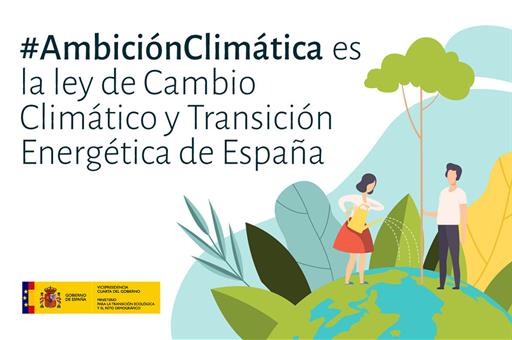Teresa Ribera welcomes approval in Lower House of first draft of Climate Change and Energy Transition Act as key instrument to modernise and transform Spain
News - 2021.4.8
Teresa Ribera claimed that "today is an important day due to the approval of a tremendously ambitious Climate Act following the joint work on which there is probably still room to continue approving a path that is not linear, but one which must be progressively enhanced as we get up to cruise speed in the future, since we addressed climate change late".
A text that has been strengthened and involved broad participation
The Fourth Vice-President of the Government underlined that all the parliamentary groups have been working to define this law since it was submitted on 19 May by the Council of Ministers to the Lower House. "This is a text that has been strengthened in terms of ambition, governance, participation and transparency, which has been enriched thanks to the contributions from the different political formations, thanks to the contributions from very different social and economic sectors, and thanks to science", she declared.
This draft law proposes how to prepare ourselves for the impacts of climate change and how to prevent its causes by using adaptation, anticipation and resilience tools. "It is a priority to ensure that all public and private resources are allocated to harnessing the opportunities and to reducing the costs associated with climate effects that we are unfortunately already living with", stressed Teresa Ribera.
She also indicated that the new law will allow for the modernisation of our industry and make it competitive in new markets, strengthen our social fabric, attract investment in future technologies, avoid financial risks, create stable jobs and facilitate a more equal distribution of wealth in the decarbonisation process, guided by the criteria of social justice and just transition strategies.
The Fourth Vice-President of the Government highlighted that this draft law is the first step in designing the rest of the policies and measures, and thus direct the recovery process towards a model of lasting prosperity that is respectful of the planet's limits. "This must serve as an institutional framework and as a reference in offering certainty and stability, and in mobilising climate action", she remarked.
Teresa Ribera recalled that the draft law sets quantifiable targets for greenhouse gases, renewable energies and energy efficiency, which constitute an unwavering minimum as they will always be revised upwardly. These targets are higher than the targets assigned to Spain by the European Union (EU). This draft law is aligned with the National Integrated Energy and Climate Plan (Spanish acronym: PNIEC), which contains the measures and tools necessary to implement the ecological transition contained in the draft law and which has been very highly rated by the EU institutions.
More ambitious goals than those required by European Union
This "unwavering ambition", according to Teresa Ribera, can be reflected, on the one hand, in the targets to reduce emissions in diffuse sectors (mobility, thermic uses in buildings, waste and agriculture). Spain is committed to a 39% reduction - 13 points higher than the target set by the European Union of 26%.
Furthermore, while the European Union establishes renewable penetration of between 38% and 40% in final energy consumption by 2030, the National Integrated Energy and Climate Plan establishes 42% for Spain. As regards energy efficiency, Europe considers an increase of between 36% and 37% to be necessary by 2030, while the Spanish target stands at 30.5%.
"This is undoubtedly a major effort that is well worth undertaking and which offers major opportunities for innovation and knowledge", claimed Teresa Ribera, in reference to "a law that guarantees channels for participation, for updates and for constant improvements". This law is good for everyone, for both current and future generations, to ensure that no-one, no group and no region is left behind, to protect the competitiveness of our industrial fabric and to protect biodiversity. In short, this is a credible country project in line with the green transformation and recovery from the COVID-19 crisis that the EU is committed to in all sectors of society.
Non official translation





